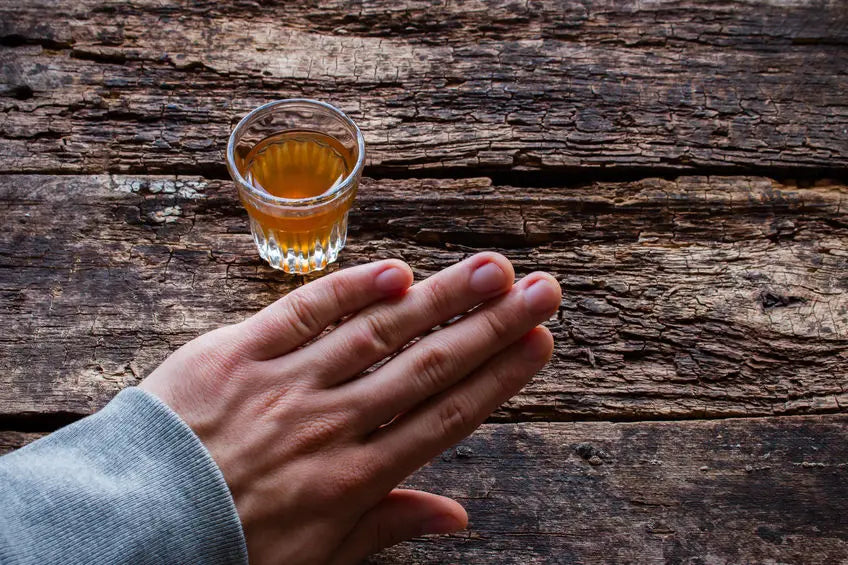
5 Reasons to Avoid Alcohol
Share
During stressful seasons of life - there are many reasons to avoid alcohol and the added burden it places on the body. It’s not all doom and gloom, though. Research points to many potential positive effects of alcohol consumption, including both psychological and health benefits. Alcohol consumption in moderation According to the National Institute of Alcohol Abuse and Alcoholism, moderate drinking is defined as no more than four drinks at a time and no more than 14 drinks per week for men. For women, who metabolize alcohol differently, it’s defined as no more than three drinks at a time and no more than seven drinks per week. Although the research on the benefits of alcohol isn’t certain, many health professionals believe that moderate alcohol use may provide health benefits for those who are generally healthy. Possible benefits include a reduction of risk of developing and dying from heart disease and a possibly reduced risk of diabetes. Research from Harvard University cites that moderate alcohol intake has been linked to a lowered risk of cardiovascular disease in both men and women. The idea is not far-fetched, considering that moderate amounts of alcohol raise levels of “good” cholesterol (high-density lipoprotein), which is associated with greater protection against heart disease. Of course, there are times when it should be completely avoided too, and the risks may far outweigh the benefits. According to Mayo Clinic, you should talk to your doctor about alcohol use if you’re pregnant, have existing chronic health issues, or take medications that can interact with alcohol. Whether you find yourself wanting to cut back or just learn more about the side effects of drinking, here are five reasons to avoid alcohol.
- It’s a diuretic. Known for its dehydrating effects, alcohol causes the body to lose water which can lead to many unpleasant side effects, such as headaches. For every serving of alcohol, include an additional 8-12 ounces of daily water intake to balance out the dehydrating effects. Avoid hangovers, bloating and inflammation by upping water intake too, and staying away from sugary or wheat-filled drinks.
- Alcohol disrupts sleep. Some people may claim that a few drinks before bed allow them to relax and get to sleep faster, but the truth is it reduces quality sleep. Studies have found that alcohol reduces rapid eye movement (REM) sleep, one of the most important phases of sleep. It can lead to long-term sleep problems too, such as sleepwalking, sleep talking and memory problems.
- Added sugars. Aside from being a potential source of antioxidants, most alcoholic beverages contain little to no nutritious value. Instead, they pack in tons of added sugars, particularly in hard ciders and cocktails. A single serving of cider may even contain as much sugar as the World Health Organization recommends for an individual’s daily limit, according to The Telegraph. When selecting a drink, steer clear of sugary drinks whenever possible.
- It’s a hidden source of gluten. For those with celiac disease or gluten sensitivity, many types of alcohol can be a sneaky trigger of a gluten reaction. Double check the labels and do your research on brands you may be unfamiliar with if you’re looking for a safe option. Several gluten free beer options are widely available in stores. Hard liquors such as tequila, gin, rum, and vodka are generally safe as long as they are unflavored. Wine and hard cider are naturally gluten free too. Pay particular attention when ordering a cocktail, as these can often be filled with artificially flavored products that may contain hidden sources of gluten.
- It can add to stress levels, rather than address them. For some people, a social drink may have positive psychological effects, such as enjoying the company of others or relaxing and having a good time with friends. Every individual is different, though, and not everyone will metabolize alcohol the same way. In fact, the body does not process alcohol the same way it does food, and it takes more energy to process large amounts of alcohol - inevitably leading to more stressful state - even if you feel relaxed.
